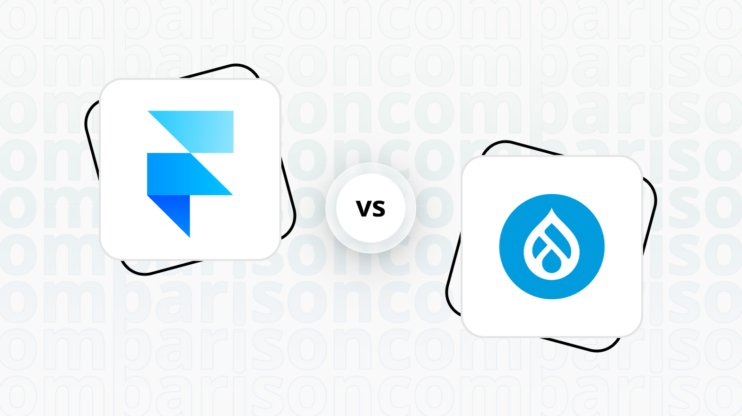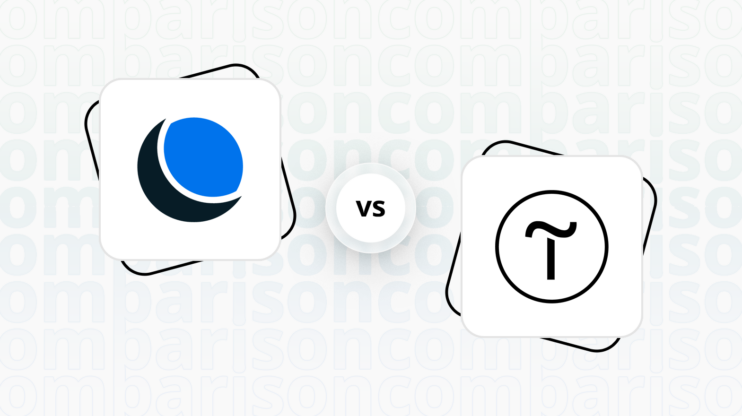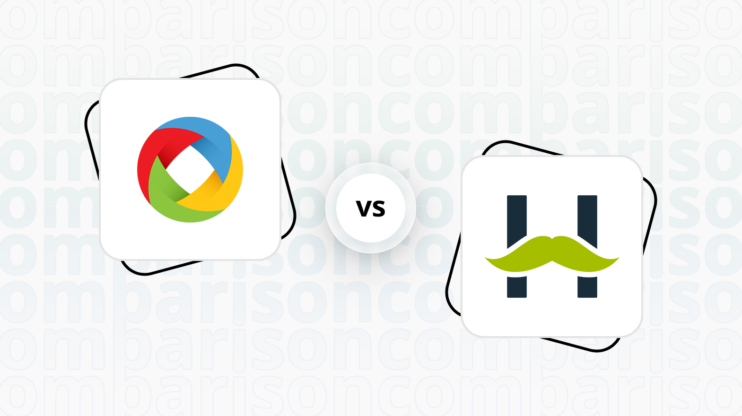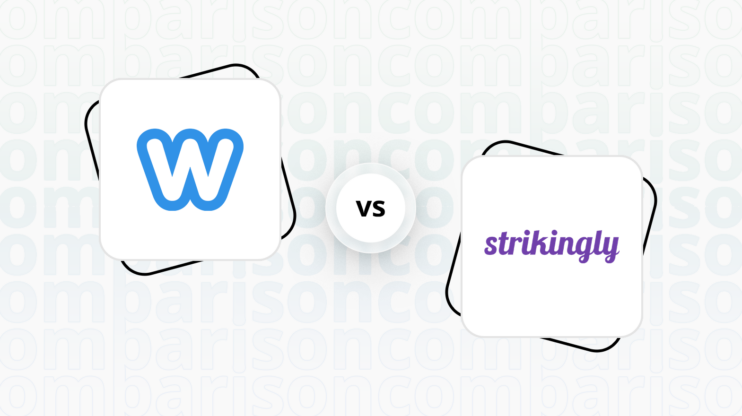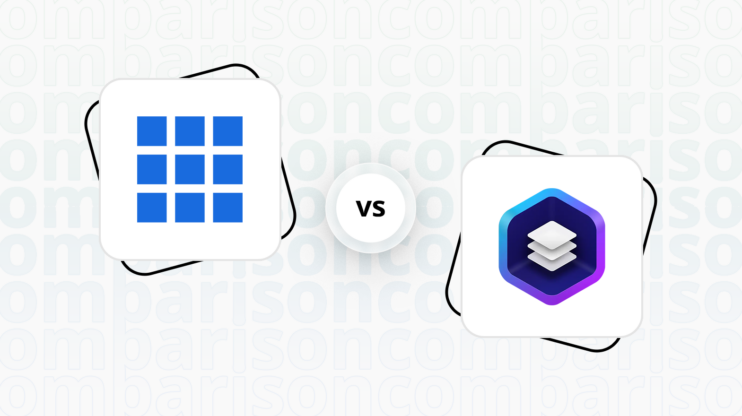Final verdict
Dreamhost and Webnode both offer unique advantages, but they cater to different user needs and preferences.
-
Dreamhost (Overall Grade: 6.7/10)
is a robust choice for users seeking extensive customization and integration options, especially those looking to leverage WordPress. Its comprehensive design functionalities, strong customer support, and advanced security features make it ideal for users who prioritize reliability and flexibility. Dreamhost’s seamless integration with WordPress and WooCommerce also makes it a strong contender for ecommerce-focused websites. -
Webnode (Overall Grade: 6.5/10)
is a user-friendly platform that excels in simplicity and ease of use, making it perfect for beginners. It offers a variety of customizable templates and a straightforward drag-and-drop interface, allowing users to create professional-looking websites quickly. While it may lack some advanced features and customization options, Webnode is a great choice for those looking to create a simple website without extensive technical knowledge.

|

|
|
|---|---|---|
|
Design functionalities & templates |
7.6 |
7.1 |
|
Ease of use |
8.2 |
8.0 |
|
Ecommerce |
7.4 |
6.3 |
|
Website Editors |
7.3 |
7.3 |
|
Product testing options |
2.7 |
5.3 |
|
Price |
7.8 |
7.7 |
|
Hosting quality |
7.2 |
6.3 |
|
Website speed optimization |
3.5 |
6.1 |
|
Plugins/extensions and integrations |
8.8 |
6.8 |
|
Marketing features |
8.0 |
5.5 |
|
Customer support |
7.5 |
5.3 |
|
Website security |
8.2 |
7.7 |
|
AI capabilities |
1.2 |
5.3 |
|
User Management |
8.8 |
6.9 |
Best for ecommerce
 7.4
7.4
 6.3
6.3
Verdict
: Dreamhost is a more robust and flexible ecommerce solution, while Webnode is better suited for beginners looking for simplicity.
-
Dreamhost
: With a score of 7.4, Dreamhost offers a comprehensive ecommerce platform through WooCommerce integration, making it ideal for businesses seeking extensive customization and scalability. It supports various payment gateways and provides advanced product page customization options, making it a versatile choice for serious ecommerce ventures. -
Webnode
: Scoring 6.3, Webnode is more user-friendly and perfect for beginners. It offers essential ecommerce features like shipping options, payment gateway integrations, and order management. However, it may lack the advanced features and scalability that more established businesses might require.
Best for informational & business websites
 7.5
7.5
 7.2
7.2
Verdict
: Dreamhost slightly edges out Webnode for informational and business websites, thanks to its robust design functionalities, ease of use, and superior customer support.
-
Dreamhost
: Dreamhost offers a comprehensive website builder tailored for users aiming to create professional-looking websites without extensive coding knowledge. With a score of 7.5, its platform, Remixer, provides a variety of themes and a simple drag-and-drop interface. Dreamhost also integrates seamlessly with WordPress, making it a versatile choice for both beginners and experienced users. Its extensive learning resources and 24/7 customer support further enhance its appeal for business websites. -
Webnode
: Webnode, scoring 7.2, is a solid option for beginners who want to create a simple website quickly and easily. It uses a drag-and-drop interface and offers a variety of customizable templates. While it may lack some advanced customization options and has limited customer support availability, Webnode’s user-friendly platform and essential features make it a good choice for those looking to establish an online presence without much hassle. When comparing Dreamhost vs Webnode, Webnode is particularly suitable for users prioritizing ease of use and quick setup.
Detailed comparison
Design functionalities & templates
Design FunctionalitiesRepresents how well each platform allows for creative design and customization of websites.Score Components:
- Template Variety (30%): Range and quality of design templates.
- Customization (30%): Flexibility and options for design alterations.
- User Interface (20%): Ease and intuitiveness of the design process.
- Responsiveness (10%): Adaptability to different devices and screen sizes.
- Innovation (10%): Unique design features and tools.
 7.6
7.6
 7.1
7.1
🏆
Winner: Dreamhost.
Dreamhost offers a more comprehensive set of design functionalities and templates, making it a better choice for users seeking extensive customization and integration options.
Dreamhost’s website builder, Remixer, offers a user-friendly interface that allows for a high degree of customization flexibility. Users can edit various elements including text, images, backgrounds, and layout structures to match their preferences. The platform also provides a wide range of themes and templates that can be further customized to ensure the final website aligns with the user’s brand identity. Additionally, Dreamhost supports integration with other tools and services, enhancing the functionality and adaptability of websites created with its builder.

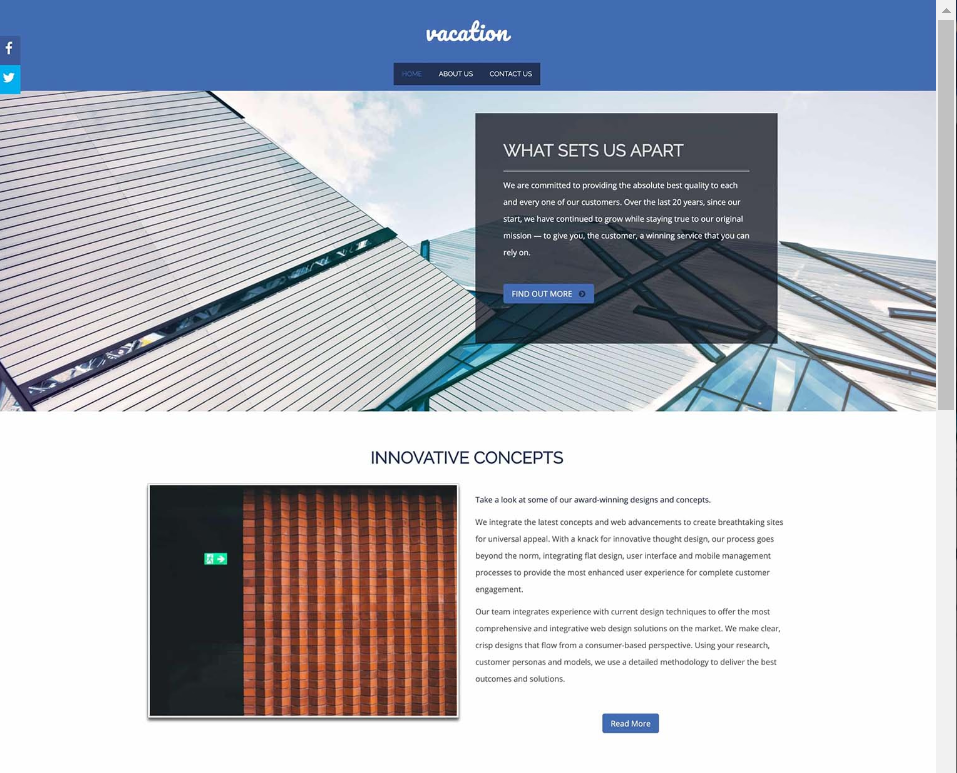
Webnode offers a variety of website templates designed for different purposes, from business and portfolios to restaurants and travel. These templates are customizable and responsive, ensuring they display well on any device. While an exact number isn’t available, Webnode provides a wide selection to cater to diverse website needs.
Get a head start on website creation with AI
Create a custom website tailored to your business needs 10X faster with 10Web AI Website Builder!
Ease of use
Ease of useReflects the platform’s overall user-friendliness.Score
Components:
- Learning curve (40%): Quickness and ease of getting started.
- Interface design (30%): Simplicity and intuitiveness of layout.
- User guidance (20%): Quality of tutorials and support.
- Flexibility (10%): Adaptability to various user skills.
 8.2
8.2
 8.0
8.0
🏆 Winner: Dreamhost
. Scoring 8.2, Dreamhost’s website builder is designed with simplicity in mind, making it highly accessible for users without prior web development experience. Webnode, with a score of 8.0, also offers a user-friendly platform but may lack some advanced customization options. Dreamhost’s seamless integration with WordPress provides additional flexibility, making it a slightly better choice for ease of use.
Learning Resources
🏆 Winner: Dreamhost
. Dreamhost offers extensive learning resources, including detailed guides and a comprehensive knowledge base, catering to both beginners and experienced users. Webnode also provides a variety of learning materials, but Dreamhost’s resources are more detailed and cover a broader spectrum of topics.
For ecommerce
EcommerceMeasures the platform’s effectiveness in supporting online business activities.Score Components:
- Ecommerce themes and templates (20%): Variety and design of templates.
- Product management (25%): Ease of managing and organizing products.
- Payment options (25%): Variety and convenience of payment methods.
- Ecommerce features (20%): Features for managing an ecommerce store.
- Integration (10%): Compatibility with external e-commerce tools and services.
 7.4
7.4
 6.3
6.3
Dreamhost offers a robust ecommerce platform with WooCommerce integration, making it suitable for businesses looking for extensive customization and scalability. Webnode, on the other hand, is more user-friendly and ideal for beginners but may fall short in terms of advanced features and scalability.

|

|
|
|---|---|---|
|
Ecommerce themes and templates |
7.0 |
6.5 |
|
Product page customization |
7.8 |
7.0 |
|
Payment processing and commissions |
7.5 |
6.8 |
|
POS capabilities |
7.0 |
4.0 |
|
Payment gateways |
7.7 |
7.0 |
|
Product numbers |
6.5 |
5.5 |
|
Additional ecommerce features |
7.2 |
6.0 |
Dreamhost ecommerce features:
- WooCommerce-Ready Themes
- Magento integration
- Shopify integration
Webnode ecommerce features:
- Shipping options
- Payment gateway integrations
- Order management
- Coupons and discounts
Ecommerce themes & templates
Dreamhost facilitates ecommerce site creation mainly through WooCommerce, offering a powerful, open-source platform with plans designed to cater to varying levels of ecommerce activity. Additionally, Dreamhost’s WP Website Builder, equipped with BoldGrid, provides a range of mobile-friendly themes for easy site customization without coding knowledge.
Webnode offers ecommerce-specific templates designed for creating online stores, though the exact number of templates available may vary over time. These templates typically come with features such as product showcasing, shopping cart functionality, support for various payment gateways, and customization options. However, users should be mindful of potential limitations such as customization restrictions, feature limitations based on plan tiers, transaction fees, and integration limitations when choosing a template and plan for their ecommerce website on Webnode.
Product page customization
Dreamhost, through the integration of WooCommerce, offers a range of customization possibilities for ecommerce product pages to enhance the shopping experience. These possibilities include layout adjustments, custom fields, dynamic content, and product variations with swatches and custom product builders.
Webnode provides users with extensive customization options for product pages, allowing for the creation of visually appealing and informative displays. Through customizable content blocks, product images and galleries, and tailored product descriptions, users can effectively showcase their products. Additionally, features such as customizable call-to-action buttons, product variations, and SEO optimization contribute to a seamless and optimized shopping experience.
Payment processing
Dreamhost supports a variety of popular payment gateways like PayPal, Stripe, Authorize.Net, Amazon Pay, and Square, each with its own fee structure but no additional charges from Dreamhost. These gateways offer features like POS capabilities, fraud detection, and international currency support, making Dreamhost a versatile choice for website builders focusing on WordPress integration.
Webnode supports various payment gateways, including popular options like PayPal and Stripe, for online transactions. While Webnode itself doesn’t charge commissions on transactions, payment gateways may have their own fee structures. Webnode primarily focuses on facilitating online transactions and doesn’t provide native POS capabilities, although integration with third-party POS solutions may be possible.
Considering the features, availability, cost, and flexibility, Dreamhost appears to be a more robust and flexible ecommerce solution compared to Webnode. However, for beginners looking for a simpler and more straightforward platform, Webnode might still be worth considering.
Website Editors
Website EditorsEvaluates the platforms’ website building and editing capabilities.Score Components:
- Customization tools (40%): Range and power of editing features.
- Editor usability (30%): User experience within the editor.
- Design flexibility (20%): Freedom in layout and design changes.
- Update and maintenance ease (10%): Simplicity of updating and maintaining the site.
 7.3
7.3
 7.3
7.3
🏆
Winner: Tie
. Both Dreamhost and Webnode score 7.3 for their website editors, each offering unique strengths tailored to different user needs.
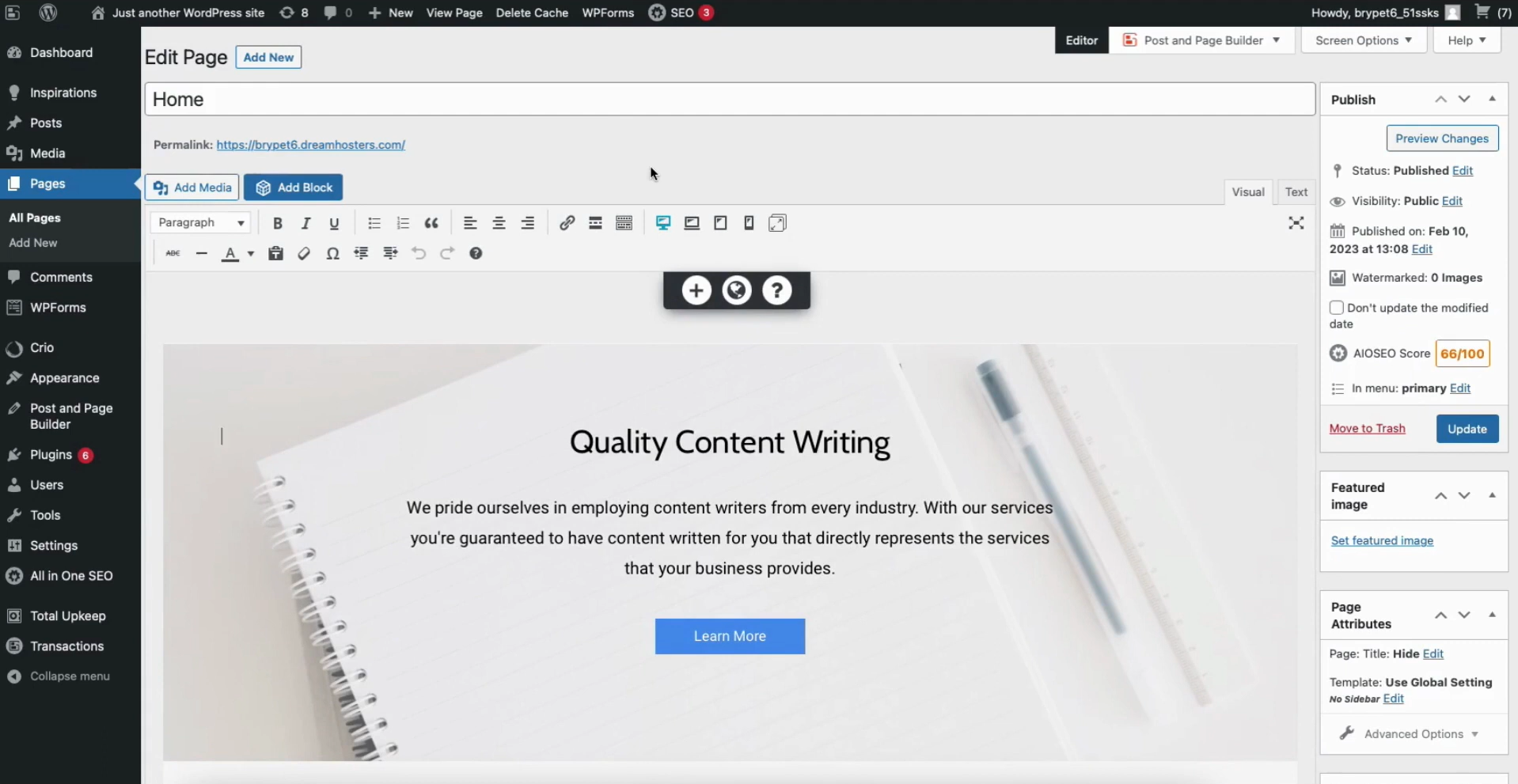
Dreamhost’s website editor, utilizing BoldGrid, provides a user-friendly interface for creating and customizing WordPress websites, employing a drag-and-drop editor that eliminates the need for coding skills. It offers a selection of mobile-friendly themes to accommodate various website needs, along with essential tools like backups to safeguard user data. The builder streamlines the website creation process, from theme selection and layout customization to the final installation, enabling users to easily adjust their site’s appearance and functionality.
Webnode’s website builder features a user-friendly drag-and-drop interface with customizable templates, enabling users to easily create professional-looking websites without coding skills. The editor offers responsive design capabilities and multilingual support, catering to diverse audiences across different devices and languages. Built-in features such as SEO tools, e-commerce functionality, and analytics integration empower users to optimize their websites for search engines, sell products online, and track performance metrics effectively. Overall, Webnode provides a comprehensive solution for individuals and businesses to create and manage their online presence efficiently.
Mobile editor/app
 5.5
5.5
 5.5
5.5

🏆
Winner: Tie
. Both Dreamhost and Webnode do not offer dedicated mobile editor apps. Instead, they allow users to modify their websites using mobile browsers, though this comes with certain limitations.
Dreamhost’s mobile editing capabilities are integrated within its broader platform, Remixer, which is tailored for users aiming to create professional-looking websites without extensive coding knowledge. While it provides a variety of themes and a drag-and-drop interface, the mobile editing experience may be somewhat restricted compared to desktop editing.
Webnode also allows users to edit their websites via mobile browsers. Its drag-and-drop interface and customizable templates make it user-friendly, but like Dreamhost, the mobile editing experience is limited compared to desktop capabilities.
In summary, both platforms offer similar mobile editing functionalities, with neither having a distinct advantage over the other in this area.
Product testing options
Product Testing OptionsAssesses the options for trying out platform features before commitment.Score Components:
- Trial quality (40%): Extent and usefulness of the trial or free version.
- Feature accessibility (30%): How many features are available to test.
- Trial duration (20%): Length of the trial period.
- Ease of transition (10%): Smoothness of moving from trial to paid plans.
 2.7
2.7
 5.3
5.3
Overall Result
:
Webnode wins
. Webnode scores 5.3, offering a more accessible product testing experience compared to Dreamhost’s score of 2.7. Webnode provides a free plan with limited features and a 15-day money-back guarantee, making it easier for users to test the platform. Dreamhost, while offering a 30-day money-back guarantee, lacks a free or trial version, which limits initial testing opportunities.

|

|
|
|---|---|---|
|
Free Plan |
No |
Yes |
|
Trial Duration |
No | No |
|
Testing Premium Features |
Possible during 30-day refundable period |
Some features with free plan |
Price
PriceLooks at the cost-effectiveness and value for money of each platform.Score Components:
- Plan value (40%): What each pricing tier offers.
- Transparency and clarity (30%): Clearness of pricing structures.
- Flexibility of plans (20%): Range of options to suit different budgets.
- Hidden costs (10%): Additional expenses not included in the plan.
 7.8
7.8
 7.7
7.7
Dreamhost and Webnode offer competitive pricing, with Dreamhost providing more robust hosting options and Webnode focusing on affordability for simpler websites.

|

|
|
|---|---|---|
|
$0-$7 |
No offering at this amount. |
LIMITED ($5.50/month): Basic plan, 200 MB storage, attach domain, website statistics, up to 5 form fields, last 30 days backup. This plan allows to manage 1 website with unlimited number of pages. Value for Price: 3.0 |
|
$7-$12 |
Shared Starter ($7.99/month): Shared Hosting with unmetered bandwidth but low SSD storage, Free SSL certificate, automated daily backups. This plan allows to manage only 1 website and there is no limitation of number of pages offered. Value for Price: 6.5 |
MINI ($10.00/month): All essentials for a simple website, 1 GB storage, 3 GB bandwidth, website statistics, 1 email account. This plan allows to manage 1 website with unlimited number of pages. Value for Price: 4.5 |
|
$10-$20 |
Shared Unlimited ($13.99/month): Shared Hosting with unlimited websites, unmetered bandwidth, but low SSD storage, pre-installed Free SSL certificate, automated daily backups. Value for Price: 7.5 |
STANDARD ($16.90/month): For starting an online store, 3 GB storage, 10 GB bandwidth, 20 email accounts, basic store features. This plan allows to manage 1 website with unlimited number of pages. Value for Price: 6.0 |
|
$20-$30 |
DreamPress ($23.99/month): Isolated Cloud hosting with unmetered bandwidth, 30GB SSD storage, staging website, fast NGINX pre-installed Free SSL certificate, Free WordPress migrations, automated daily backups and on-demand 1-click restore, specialized WordPress support. This plan allows to manage only 1 website and there is no limitation of number of pages offered. Value for Price: 8.0 |
PROFI ($26.50/month): Professional websites, 7 GB storage, unlimited bandwidth, 100 email accounts, full online store capabilities. This plan allows to manage 1 website with unlimited number of pages. Value for Price: 7.5 |
|
$30-$40 |
DreamPress Plus ($34.99/month): Isolated Cloud hosting with unmetered bandwidth, 60GB SSD storage, staging website, unlimited CDN, fast NGINX pre-installed Free SSL certificate, Free WordPress migrations, automated daily backups and on-demand 1-click restore, specialized WordPress support, 3-phone support callbacks. This plan allows to manage only 1 website and there is no limitation of number of pages offered. Value for Price: 8.5 |
BUSINESS ($34.90/month): Comprehensive e-commerce, 15 GB storage, unlimited bandwidth, 1000 email accounts, advanced online store features. This plan allows to manage 1 website with unlimited number of pages. Value for Price: 8.5 |
|
$80+ |
DreamPress Pro ($89.99/month): Isolated Cloud hosting with unmetered bandwidth, 120GB SSD storage, staging website, unlimited CDN, fast NGINX pre-installed Free SSL certificate, Free WordPress migrations, automated daily backups and on-demand 1-click restore, specialized WordPress support, 5-phone support callbacks and priority support. This plan allows to manage only 1 website and there is no limitation of number of pages offered. Value for Price: 9.0 |
No offering at this amount. |
location. As a result in rare cases the prices displayed here can differ from the ones you see on their
websites.
Hosting quality
Hosting
qualityExamines the reliability and performance of the hosting solutions.Score Components:
- Uptime (40%): Consistency and reliability of website availability.
- Speed (30%): Loading times and performance.
- Bandwidth and storage (20%): Sufficiency of resources provided.
- Data centers (10%): Quality and distribution of hosting infrastructure.
 7.2
7.2
 6.3
6.3
🏆
Winner: Dreamhost
Dreamhost offers a more transparent and reliable hosting service with shared and cloud hosting options, a 99.93% uptime with a 100% uptime guarantee, and two data centers in the US. Webnode, while offering hosting with varying bandwidth and automated backups, lacks transparency in its hosting type and data center locations, and has a lower uptime of 99.6% without an uptime guarantee. Dreamhost’s focus on reliability and customer support makes it the better choice for hosting quality.

|

|
|
|---|---|---|
|
Do they offer hosting? |
Yes, included in all their plans, shared or cloud hosting depending on the plan |
Yes, with from 1GB to unlimited bandwidth and automated backups on higher plans |
|
Data Centers: |
2 data centers in US: Ashburn, Virginia and Hillsboro, Oregon |
<`Webnode: Data centers`> |
|
Type of hosting: |
Shared Hosting, Cloud Hosting |
<`Webnode: Type of hosting`> |
|
Uptime: |
99.93% |
99.6% |
|
Uptime Guarantee: |
Yes, 100% |
No |
Website Speed Optimization
Website Speed OptimizationEvaluates optimization of website loading timesScore Components:
- PageSpeed Score (30%): Google’s score indicating performance optimization.
- Loading Time (30%): The average time until a website is fully interactive.
- Mobile Optimization (15%): Optimization effectiveness for mobile devices.
- Resource Optimization (15%): Optimizing images, scripts, and other heavy resources.
- CDN Usage (10%): Use of CDN to enhance speed across geolocations.
 3.5
3.5
 6.1
6.1
🏆 Winner: Webnode
Both Dreamhost and Webnode offer strategies for optimizing website speed, but Webnode has a slight edge in overall performance.

|

|
|
|---|---|---|
|
Focus |
Built-in Caching, Code minification |
Code Minification, Image Optimization, Caching |
|
Performance Tools |
Image optimization |
Image Optimization, Caching |
|
Key Strategies |
Built-in Caching on higher plans, Code minification, Image optimization |
Code Minification, Image Optimization, Caching |
|
Load Times |
1.75-3 seconds average |
Varies depending on optimization |
|
Page Speed Scores Range |
No data available |
Varies depending on optimization |
|
Core Web Vitals Improvement |
No information disclosed |
No information disclosed |
Dreamhost offers a comprehensive website builder tailored for users aiming to create professional-looking websites without the need for extensive coding knowledge. Their platform, Remixer, allows users to choose from a variety of themes and customize them using a simple drag-and-drop interface. Dreamhost also integrates seamlessly with WordPress, providing an easy transition for users looking to leverage more advanced features or migrate their existing sites. With a focus on reliability and customer support, Dreamhost’s website builder is designed to cater to both beginners and experienced users looking for a robust web hosting solution. Dreamhost’s speed optimization strategies include built-in caching on higher plans, code minification, and image optimization. Load times average between 1.75 to 3 seconds, but no specific PageSpeed scores are available.
Webnode is a website builder that allows you to create a website without needing any coding knowledge. It uses a drag-and-drop interface, which means you can simply move elements around the page to create your desired layout. Webnode offers free plans, but these have limitations on storage and features. Paid plans offer more storage, custom domain names, and the ability to remove Webnode ads from your website. Overall, Webnode is a good option for beginners who want to create a simple website quickly and easily. Webnode’s speed optimization strategies include code minification, image optimization, and caching. Load times and PageSpeed scores vary depending on the level of optimization applied. Neither platform provides detailed information on Core Web Vitals improvements.
Get a head start on website creation with AI
Create a custom website tailored to your business needs 10X faster with 10Web AI Website Builder!
Plugins and integrations
Plugins and integrationsMeasures the range and effectiveness of additional plugins and integrations.Score Components:
- Variety of options (40%): Range of available add-ons.
- Integration smoothness (30%): Ease of integrating plugins into the site.
- Quality of plugins (20%): Functionality and reliability of the options.
- Custom integration capabilities (10%): Support for custom or third-party integrations.
 8.8
8.8
 6.8
6.8
🏆 Winner: Dreamhost.
Dreamhost scores 8.8, excelling with its extensive support for WordPress plugins, which offer a wide range of functionalities from SEO to e-commerce. This makes it a versatile choice for users looking to significantly enhance their website’s capabilities. Webnode, with a score of 6.8, provides a decent selection of plugins through Elfsight, but it doesn’t match the breadth and depth offered by Dreamhost.
It is however worth mentioning that Webnode’s plugins are particularly user-friendly and cater well to beginners looking to enhance their websites without extensive technical knowledge.
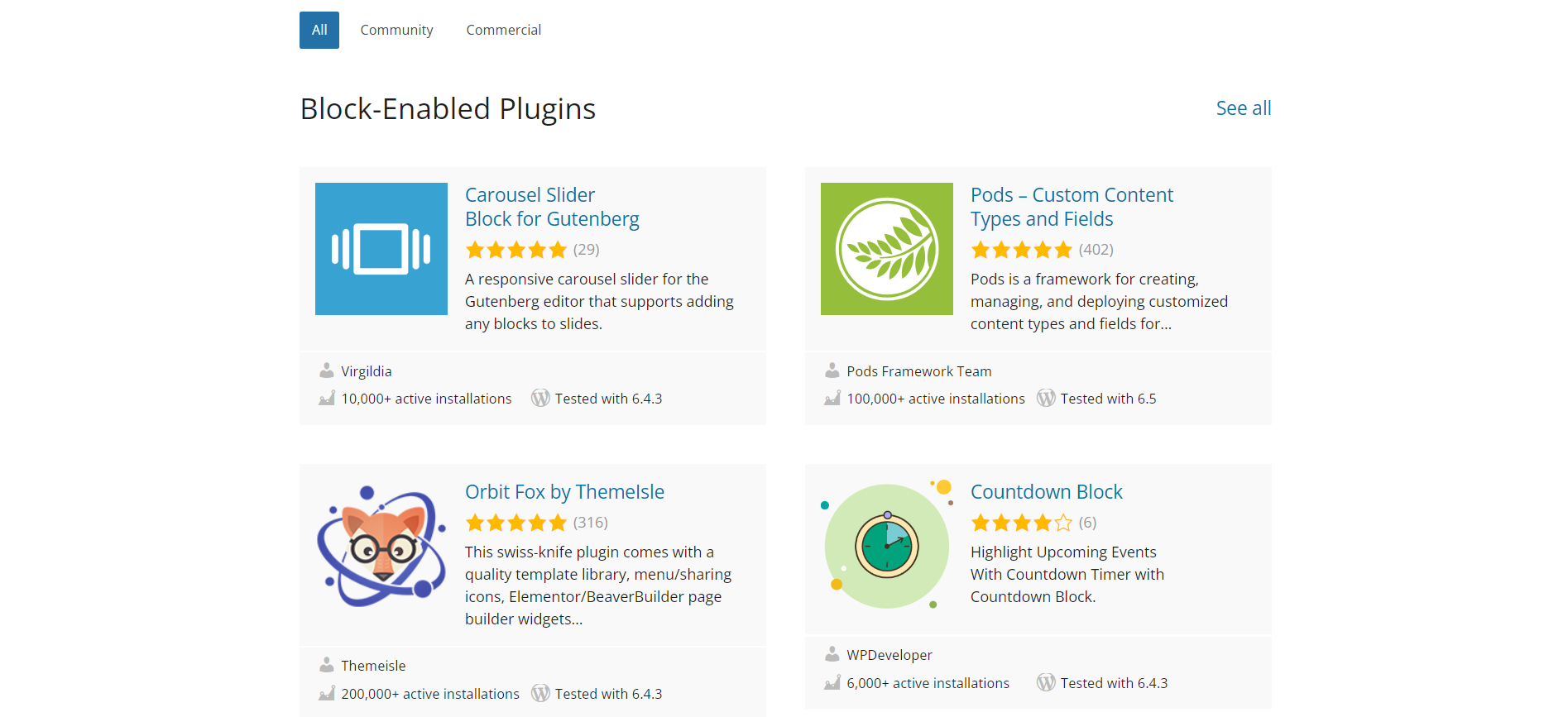

Marketing Features
Design FunctionalitiesRepresents how well each platform allows for creative design and customization of websites.Score Components:
- Template Variety (30%): Range and quality of design templates.
- Customization (30%): Flexibility and options for design alterations.
- User Interface (20%): Ease and intuitiveness of the design process.
- Responsiveness (10%): Adaptability to different devices and screen sizes.
- Innovation (10%): Unique design features and tools.
 8.0
8.0
 5.5
5.5
🏆
Overall Winner: Dreamhost
. Dreamhost excels with its comprehensive SEO toolkit, third-party email marketing integrations, and robust analytics. Webnode, while user-friendly, offers more basic marketing features suitable for beginners.

|

|
|
|---|---|---|
|
SEO Tools |
Comprehensive SEO Toolkit |
Basic SEO features |
|
Email Marketing |
Integration with AWeber and MailChimp |
Form building for email collection |
|
Blogging |
Blog templates, Comments, Categories and tags |
Blog templates, Categories and tags |
|
Social Media Integration |
Seamless integration with major platforms |
Easy linking and social post creation |
|
Analytics and Reporting |
Google Analytics integration |
Integration with Google Analytics and Search Console |
|
Ads and Promotions |
Third-party plugin integration |
Built-in features for ads and promotions |
Customer Support
Customer supportEvaluates the quality and availability of support options.Score Components:
- Response time (40%): Speed of support responses.
- Support quality (30%): Effectiveness and helpfulness of the support.
- Availability (20%): Range of support channels (phone, chat, email).
- Resource richness (10%): Quality of self-help and educational materials.
 7.5
7.5
 5.3
5.3
🏆 Winner: Dreamhost
. In the comparison of Dreamhost vs Webnode, Dreamhost takes the lead with its 24/7 live chat and email support, ensuring users can get assistance at any time. Dreamhost’s commitment to minimal wait times and quick email responses within one to two hours makes it a reliable choice for users needing prompt support.
Webnode, on the other hand, offers customer support in over 20 languages but is limited to weekdays. While email support is available with a 24-hour response time, the lack of live chat and general phone support can be a drawback for users needing immediate help. Premium customers do receive priority phone support, but this is not as accessible as Dreamhost’s round-the-clock support options.
Security
SecurityLooks at the platforms’ security measures and data protection.Score Components:
- Data protection (40%): Safeguards for user and customer data.
- SSL and encryption (30%): Implementation of secure connections.
- Compliance (20%): Adherence to industry security standards.
- Regular updates (10%): Frequency of security updates and patches.
 8.2
8.2
 7.7
7.7
🏆
Winner: Dreamhost
. Dreamhost excels in security with a comprehensive suite of features including free Let’s Encrypt SSL certificates, multi-factor authentication, and advanced web application firewalls like mod_security and lua-resty-waf. Their commitment to data protection is evident through their detailed privacy policy and robust security measures, making it a reliable choice for users prioritizing security.
Webnode, while offering essential security features such as HTTPS, IP Filters, and GDPR compliance tools, falls slightly behind Dreamhost in terms of advanced security measures. Their Premium Site Security add-on provides additional protection, but Dreamhost’s overall security infrastructure is more robust and comprehensive.
AI Capabilities
AI capabilitiesMeasures the effectiveness of AI-driven features and tools.Score Components:
- Automation efficiency (40%): Impact of AI on streamlining processes.
- Personalization (30%): AI-driven customization for users or customers.
- AI-Assisted design (20%): Role of AI in website design and functionality.
- Data analysis (10%): Use of AI in interpreting user data and analytics.
 1.2
1.2
 5.3
5.3

|

|
|
|---|---|---|
|
AI Builder |
Dreamhost does not have an AI website builder |
Webnode AI builder generates custom websites based on user input |
|
AI Ecommerce Features |
Dreamhost does not have AI-powered ecommerce features |
Webnode does not have AI ecommerce features |
|
AI Content Generation |
AI business name generator |
|
|
Additional AI Features |
|
|
🏆 Winner: Webnode
. Webnode, with a score of 5.3, offers a more advanced AI builder that assists users in creating custom websites by generating text content and sourcing relevant images based on user input. This makes the website creation process more accessible and efficient for users without technical expertise.
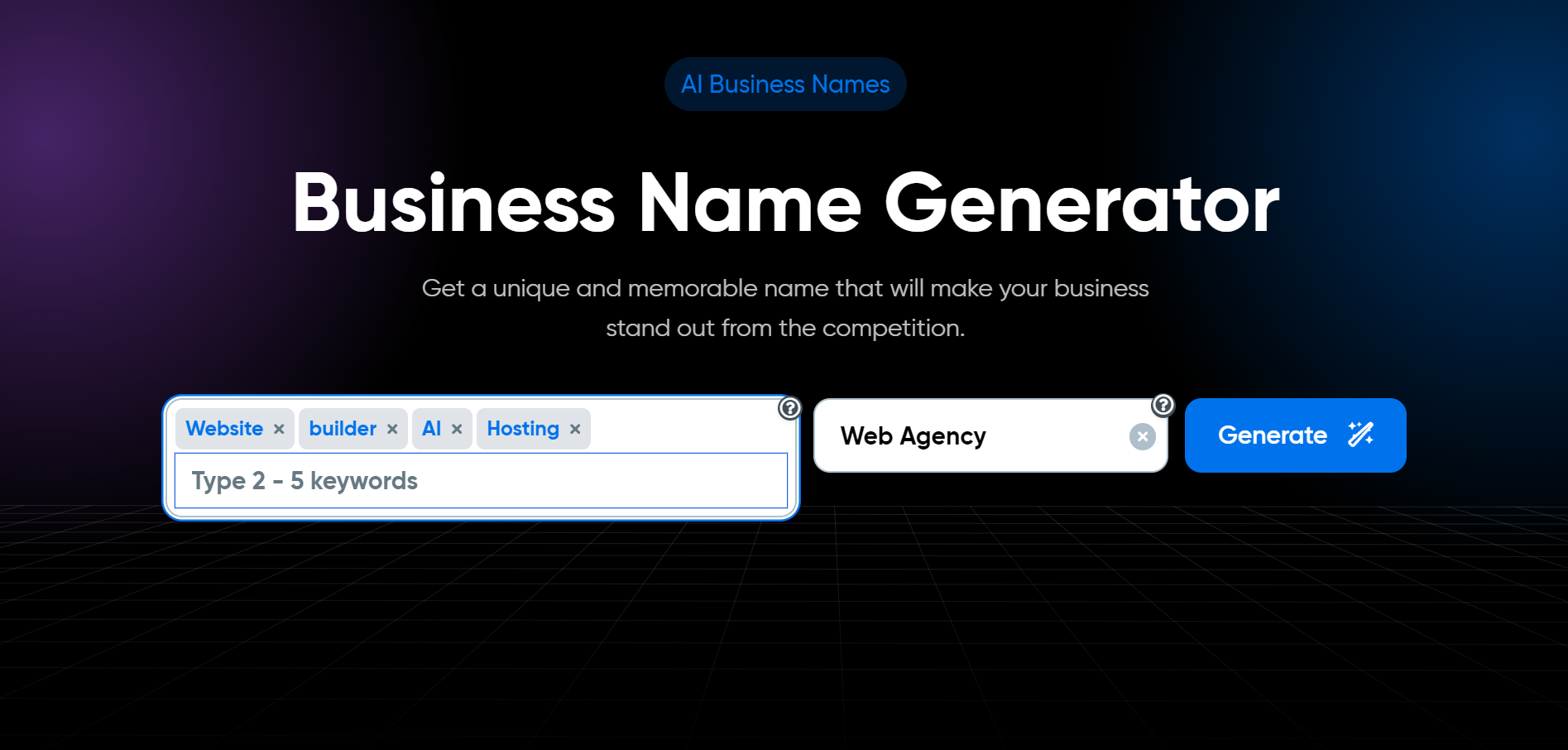
Dreamhost, with a score of 1.2, has very limited AI capabilities, primarily offering an AI business name generator. It lacks comprehensive AI features for website building and ecommerce.
User Management
User ManagementAssesses the platforms’ capabilities in managing user roles, permissions, and accessibility.Score Components:
- Role Customization (40%): Flexibility in creating and defining user roles and
permissions. - Ease of Management (30%): User interface and tools for managing users.
- Access Control (20%): Effectiveness of access control measures for different user
levels. - Scalability (10%): Ability to manage a growing number of users efficiently.
 8.8
8.8
 6.9
6.9
🏆 Winner: Dreamhost
. Managing your online team with Dreamhost and Webnode involves different approaches to website editing access.
- Dreamhost’s website builder primarily uses WordPress, which allows for multiple users to edit a website. WordPress enables the addition of numerous users with various roles such as Administrator, Editor, Author, Contributor, and Subscriber. Each role has its own set of permissions and capabilities, allowing for flexible and controlled access for different users.
- Webnode allows multiple users to manage and edit a website, but the exact number varies depending on the subscription plan you choose. Generally, the free version of Webnode provides limited user access for management and editing, while premium plans offer more flexibility, including the ability to add multiple users with different roles and permissions.
Dreamhost User Roles and Access Levels:
| Role | Description | Access Highlights |
|---|---|---|
| Administrator | Users with full access to all administration features, including Elementor settings. | Can edit all content, Access to Elementor settings, Can install plugins and themes, Can manage users |
| Editor | Users who can manage and publish content including pages and posts. | Can edit pages/posts created with Elementor, Cannot access Elementor settings, Can manage categories, tags, and links, Can moderate comments |
| Author | Users who can publish and manage their own posts. | Can create posts with Elementor, Cannot edit pages, Limited access to media library, Cannot access Elementor settings |
| Contributor | Users who can write and manage their own posts but cannot publish them. | Can create content with Elementor, Cannot publish or edit pages, No access to Elementor settings, Submissions require review by higher-level roles |
Webnode User Roles and Access Levels:
| Role | Description | Access Highlights |
|---|---|---|
| Website Owner | The individual or entity that owns the Webnode website. | Full access: can modify site structure, design, content, and manage user roles. |
| Administrator | Users with administrative privileges assigned by the website owner. | Nearly full access, including content management, and some settings adjustments. |
| Editor | Users tasked with creating, editing, and publishing content. | Access to add and edit content, blog posts, and pages, but cannot alter design. |
| Contributor | Users who can contribute content but cannot publish it. | Can draft content but need approval from an Editor or Administrator to publish. |
| Viewer/Visitor | Individuals who visit the website without any editing permissions. | Can view the public website and interact through comments or contact forms. |
| E-commerce Manager | Specifically for websites with an e-commerce component, managing products. | Can add, edit, and manage products, orders, and customer interactions. |
Additional Features

|

|
|
|---|---|---|
|
SSL Certificate |
✓ |
✓ |
|
Custom Domain |
✓ |
✓ |
|
Free Custom Domain Included |
✓ |
✓ |
|
International Domains |
✓ |
✓ |
|
Mobile Responsive |
✓ |
✓ |
|
Page Speed |
✓ |
✓ |
|
Website Builder Mobile App |
X |
X |
|
Convert a Website To An App |
X |
X |
|
Website Analytics |
✓ |
✓ |
|
Multilingual Sites |
✓ |
✓ |
|
Multiple Users |
✓ |
✓ |
User Feedback
Users appreciate DreamHost WP Website Builder for its ease of use, broad template selection, and integrated hosting solutions, highlighting its utility in building and managing websites efficiently. However, some users suggest improvements in areas such as image editing capabilities, customer support, and software optimization to enhance speed and functionality. While many find it a cost-effective and user-friendly option for website development without coding, others express concerns over occasional software bugs, slow website performance, and the desire for more advanced features.
User feedback on Webnode highlights its ease of use, rapid website creation capabilities, and the wide range of templates available, making it a popular choice for individuals and businesses seeking an intuitive web development platform. While praised for its user-friendly interface and quick setup, including domain purchase and application, some users express a desire for more flexibility and customization options, especially in themes and e-commerce features. Comparatively, it falls short on advanced functionalities such as SEO tools and widgets offered by competitors like WordPress. Customer service experiences vary, with some users facing challenges in getting support for email hosting and analytics integration.
The making of this blog
We followed a clear, step-by-step process to write and research this article.
FAQ
Which platform is better for beginners, Dreamhost or Webnode?
Can I use both Dreamhost and Webnode for ecommerce?
How do Dreamhost and Webnode differ in terms of customization and design flexibility?
What are the major differences in pricing between Dreamhost and Webnode?










